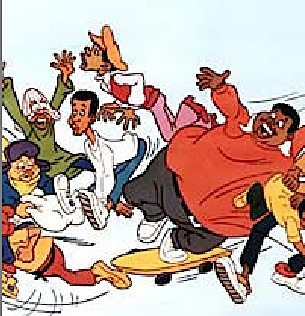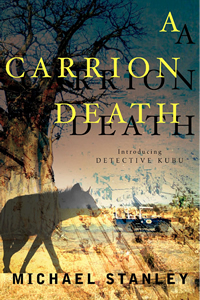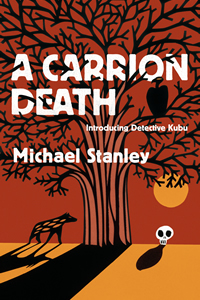Welcome back to my series on building the toolkit to construct a stellar pitch — or a brilliant query letter, for that matter. As I may PERHAPS have intimated before, the essential skills a writer uses for creating each are, if not the same, at least closely related. Note that I called them skills, and not talents. Contrary to popular belief, success in marketing one’s work is not entirely reliant upon the quality of the writing; it’s also about professional presentation.
Which is, in fact, learned. As in any other business, there are ropes to learn.
I cannot stress this enough: pitching and querying well require skills that have little to do with talent. No baby, no matter how inherently gifted in finding la mot juste, has ever crawled out of the womb already informed by the celestial talent-handlers how to make her work appealing to the publishing industry, I assure you.
I wish this were a more widely-accepted truth on the conference circuit. Writers so often plunge into pitching or querying with sky-high hopes, only to have them dashed. But an unprofessional pitch or query letter is generally rejected on that basis, not necessarily upon the book concept or the quality of the writing. Until a book has been marketed properly, it’s virtually impossible to glean writing-related feedback from rejections at all.
So, onerous as it is, it truly behooves writers to start to think like marketers, at least for the few weeks immediately prior to attending a literary conference or sending out a flotilla of queries.
Today, I am — surprise, surprise — going to talk about something pitching classes very seldom address, identifying a book’s selling points. Over the next couple of days, we’re going to work on developing a list of selling points for the book to be pitched or queried.
Specifically, I’m going to ask you to prepare a page’s worth of single-sentence summaries of attributes (the book’s or yours personally) that make the book the best thing since the proverbial sliced bread.
And why bullet-pointed, rather than paragraphs? So you can retrieve precisely the piece of information you need at any given moment, without fumbling for it. Even if sweat is pouring down your face into your eyes and your heart is palpitating, you will be able to sound professional.
And that, my friends, is nothing at which to be sneezing.
Why am I encouraging you to do this? Because a really well-prepared list of selling points is like a really, really tiny press agent that can travel everywhere your manuscript goes. And whose book couldn’t benefit from that?
To be clear: this is not something you absolutely NEED to prepare before you pitch or query, but I think it’s a really, really good idea. But unless you happen to be pitching to my agent after having identified yourself as one of my blog’s readers, it’s unlikely to the point of hilarity that an agent is going to look at you expectantly as soon as you walk into the meeting and say, “Well? Where’s your list.
Even if you are not planning to pitch anytime soon, it is still worth constructing your list of selling points. Pulling together such a document forces you to come up with SPECIFIC reasons that an agent or editor should be interested in your book.
Other than, of course, the fact that you wrote it.
I’m only partially kidding about this last point. Nonfiction writers accept it as a matter of course that they are going to need to explain explicitly why the book is marketable and why precisely they are the best people in the known universe to write it — that mysterious entity called platform. These are specific elements in a standard NF book proposal, even.
Yet ask a fiction writer why his book will interest readers, let alone the publishing industry, and 9 times out of 10, he will be insulted.
Why the differential? Well, as I mentioned earlier in this series, a lot of writers, perhaps even the majority, do not seem to give a great deal of thought to why the publishing industry might be excited about THIS book, as opposed to any other.
Interestingly, though, many do seem to have thought long and hard about why the industry might NOT want to pick up a book. As a long-time pitching coach, I cannot even begin to tote up how many pitches I’ve heard that began with a three-minute description of every rejection the book has ever received.
Not only will constructing a list help you avoid this very common pitfall — it will also aid you in steering clear of the sweeping generalizations writers tend to pull out of their back pockets when agents and editors ask follow-up questions.
Did that gigantic gulping sound I just heard ripping across the cosmos emit from you, dear readers? “Follow-up questions?” the timorous quaver. “You mean that in addition to gasping out a pitch, I have to have enough brain power handy to answer FOLLOW-UP QUESTIONS? I always thought that the agent or editor just listened to the pitch, said yes or no, and that was that.”
Um, no — at least, not if the agent or editor likes what s/he heard you say. As in ordinary conversation, follow-up questions after a pitch are a common indicator of the hearer’s interest in what’s being discussed. One very, very common follow-up question, as it happens, is “Okay, why do you think this story will appeal to readers?”
Stop hyperventilating. It’s a perfectly reasonable question.
What most pitchers do when caught off-guard by such a question is EITHER to start making wild assertions like, “This book will appeal to everyone who’s ever had a mother!” or “Every reader of horror will find this a page-turner!” OR to hear the question as a critique of the book they’re pitching. “Oh, I guess you’re right — no one will be interested,” these poor souls mutter, backing away from the bewildered agent.
Neither course will serve you. As I mentioned the other day, agents and editors tend to zone out on inflated claims about a novel’s utility to humanity in general — although if your book actually CAN achieve world peace, by all means mention it — or boasts that it will appeal to every literate person in America (a more common book proposal claim than one might imagine). They also tend, like most people, to equate a writer’s apparent lack of faith in her own work with its not being ready for the slings and arrows of the marketplace.
A writer’s having thought in advance about what REALISTIC claims s/he can legitimately make about why readers might like the book thus enjoys a significant advantage on the pitching floor.
In short, the selling point sheet prevents you from panicking in the moment; think of it as pitch insurance. Even if you draw a blank three sentences into your pitch, all you will have to do is look down, and presto! There is a list of concrete facts about you and your book.
”Yeah, right,” I hear the more cynical out there thinking. “What is this list, a Ginzu knife? Can it rip apart a cardboard box, too, and still remain sharp enough to slice a mushy tomato?”
Doubt if you like, oh scoffers, but his handy little document has more uses than duct tape — which, I’m told, is not particularly good at mending ducts.
How handy, you ask? Well, for starters:
1. You can have it by your side during a pitch, to remind yourself why your book will appeal to its target market. (Hey, even the best of us are prone to last-minute qualms about our own excellence.)
2. You can use it as a guideline for the “Why I am uniquely qualified to write this book” section of your query letter. (If you don’t know why you might want to include this section, please see the HOW TO WRITE A QUERY LETTER category on the list at right before you write your next.)
3. You can add it to a book proposal, to recap its most important elements at a glance. (My memoir agent liked the one I included in my proposal so much that she now has her other clients add them to their packets, too.)
4. You can tuck it into a submission packet, as a door prize for the agency screener charged with the merry task of reading your entire book and figuring it out whether it is marketable.
5. Your agent can have it in her hot little hand when pitching your book on the phone to editors.
6. An editor who wants to acquire your book can use the information on it both to fill out the publishing house’s Title Information Sheet and to present your book’s strengths in editorial meetings.
Okay, let’s assume that I’ve convinced you that pulling together this list is a good idea. (Just ignore the muffled screams in the background. People who can’t wait until the end of a post to register objections deserve to be gagged, don’t you find?) What might you include on it?
Well, for starters, the names of similar books that have sold well (along with some indication of why your book is different, better, and will appeal to the same demographic), your past publications, credentials, trends, statistics, high points in your background — anything that will make it easier to market your book.
Why are you the best person in the universe to tell this story (or to put it another way: what’s your platform?), and why will people want to read it?
Those of you wise to the ways of the industry are probably already thinking: oh, she means the items on my writing résumé. (And for those of you who do not know, a writing résumé is the list of professional credentials — publications, speaking experience, relevant degrees, etc. — that career-minded writers carefully accrue over the years in order to make their work more marketable. For tips on how to build one from scratch, please see the aptly named BUILDING YOUR WRITING RESUME category at right.)
Yes, list these points, by all means, but I would like to see your list be broader still.
Include any fact that will tend to boost confidence in your ability to write and market this book successfully — and that includes references to major bestsellers on similar topics, to show that there is already public interest in your subject matter.
So it’s time for a good, old-fashioned brainstorming session. Think back to your target market (see the posts of the last two days). Why will your book appeal to that market better than other books? Why does the world NEED this book?
Other than, obviously, the great beauty of the writing.
And yes, literary fiction writers, it would be in your best interest to give some thought to this point, too. As I’ve said before and will doubtless say again, even the most abstruse literary fiction is about something other than just the writing.
So why will the subject matter appeal to readers? How large is the book’s target demographic? And if you were the publicity person assigned to promote the book, what would you tell the producer of an NPR show in order to convince him to book the author?
No need to write pages and pages of justification on each point — a single sentence on each will serve you best here. Remember, the function of this list is ease of use, both for you and for those who will deal with your book in future. Keep it brief, but do make sure that you make it clear why each point is important.
Possible bullet points include (and please note, none of my examples are true; I feel a little silly pointing that out, but I don’t want to find these little tidbits being reported as scandalous factoids in the years to come):
(1) Experience that makes you an expert on the subject matter of your book. This is the crux of a NF platform, of course, but it’s worth considering for fiction, too. If you have spent years on activities relating to your topic, that is definitely a selling point.
Some possible examples: Marcello Mastroianni has been a student of Zen Buddhism for thirty-seven years, and brings a wealth of meditative experience to this book; Clark Gable has been Atlanta’s leading florist for fifteen years, and is famous state-wide for his Scarlett O’Hara wedding bouquets; Tammy Faye Baker originally came to public attention by performing in a show featuring sock puppets, so she is well identified in the public mind with puppetry.
(Actually, I think this last one is at least partially true. But I should probably state up front that otherwise, my examples will have no existence outside my pretty little head, and should accordingly remain unquoted forever after.)
(2) Educational credentials. Another favorite from the platform hit parade. Even if your degrees do not relate directly to your topic, any degrees (earned or honorary), certificates, or years of study add to your credibility.
Yes, even if you are a fiction writer: a demonstrated ability to fulfill the requirements of an academic program is, from an agent or editor’s point of view, a pretty clear indicator that you can follow complex sets of directions. (Believe me, the usefulness of a writer’s ability to follow directions well will become abundantly apparent before the ink is dry on the agency contract: deadlines are often too tight for multiple drafts.)
Some possible examples: Audrey Hepburn has a doctorate in particle physics from the University of Bonn, and thus is eminently qualified to write on atomic bombs; Charlton Heston holds an honorary degree in criminology from the University of Texas, in recognition of his important work in furthering gun usage; Jane Russell completed a certificate program in neurosurgery at Bellevue Community College, and thus is well equipped to field questions on the subject.
(3) Honors. If you have been recognized for your work (or volunteer efforts), this is the time to mention it. (Finalist in a major contest, in this or any other year, anybody?)
Some possible examples: Myrna Loy was named Teacher of the Year four years running by the schools of Peoria, Kansas; Keanu Reeves won the Nobel Prize in Chemistry in 1990 for his research on THE MATRIX; Fatty Arbuckle was named Citizen of the Year of Fairbanks, Alaska. As a result, newspapers in Fairbanks are demonstrably eager to run articles on his work.
(4) Your former publications and public speaking experience. Another good one from the standard platform list. If you have any previous publication whatsoever, list it, EVEN IF IT IS OFF-TOPIC. If your last book in another genre sold well, or if you were affiliated somehow with a book that sold well, mention it.
If you have ever done any public speaking, mention it, too: it makes you a better bet for book signings and interviews. If you have done a public reading of your work, definitely mention it, because very few first-time authors have any public reading experience at all.
Some possible examples: Diana Ross writes a regular column on hair care for Sassy magazine; Twiggy has published over 120 articles on a variety of topics, ranging from deforestation to the rise of hemlines; Marcel Marceau has a wealth of public speaking experience. His lecture series, “Speak Up!” has drawn crowds for years on eight continents.
I feel some of you tensing up out there, but never fear: if you have few or no previous publications, awards, writing degrees, etc. to your credit, do not panic, even for an instance. There are plenty of other possible selling points for your book — but of that array, more follows next time.
Keep up the good work!

















